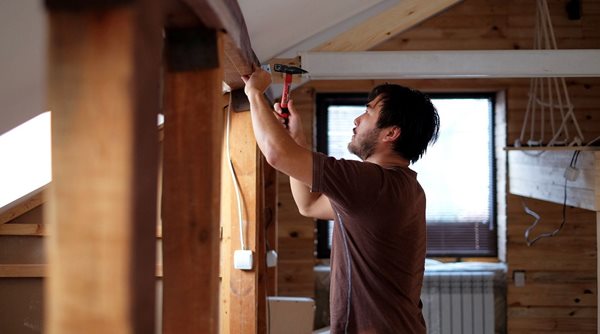Most people are familiar with real estate mortgages, even if they aren’t homeowners. For many, securing a mortgage is an essential step to owning property. But did you know there are many types of mortgages? In some cases, a property may be subject to a mortgage without the owner’s implied or explicit consent. This is known as a legal hypothec.
Types of legal hypothecs
The law recognizes four types of legal mortgages, each with their own characteristics.
Legal hypothec of the State
Intended for governments and legal persons established in the public interest (school boards, municipalities, hospitals, universities, Hydro-Québec, etc.), the legal hypothec of the State applies to the recovery of certain claims, including sums due under tax laws. For example, if you don’t pay your taxes, Revenu Québec can register a legal hypothec on your property.

Legal hypothec of construction
Have you purchased a property that’s still on the drawing table? Are you renovating your home? Watch out for a legal hypothec of construction, one of the most common legal hypothecs in Quebec.
As its name suggests, it is in favour of the persons having taken part in the construction or renovation of an immovable. These include architects and engineers registered with professional associations, suppliers of materials, workers, and contractors and subcontractors licensed by the Régie du bâtiment du Québec (RBQ).
The legal hypothec of construction does have its limitations. To exist, it must increase the value of your property (i.e., cause its value to appreciate). This would be the case if you added a garage or installed a larger, more luxurious shower. In general, maintenance and minor repairs don’t apply. For example, if you hire a plumber to replace a defective toilet but fail to pay for their services, the plumber will probably not have recourse to a legal hypothec of construction.
Are you having a property built? Keep in mind that subcontractors—those who don’t do business directly with you—must notify you in writing of their contract before work begins. If, for example, your contractor is working with an electrician company, that company must communicate the nature of its work and the agreed-upon price in writing. However, workers are not legally required to submit to this obligation.
Another special feature of the legal hypothec of construction is that it takes precedence over all other mortgages on your property, even the oldest. In addition, those who wish to register a legal hypothec have 30 days following the completion of work to have it published in the land register and notify you of this publication. During these 30 days, the legal hypothec exists, even if it hasn’t appeared in the land register. In other words, it’s impossible for a contractor to register a legal hypothec on your property two years after the completion of work.
Furthermore, a contractor cannot leave a legal hypothec on your property indefinitely without taking subsequent measures. They have six months following the completion of work to publish an action against you or register a prior notice of the exercise of a hypothecary right.
Legal hypothec of a syndicate of co-owners
If you’re a property co-owner, paying your condo fees on time is essential. If you fail to pay your common expenses or your contribution to the contingency fund, your syndicate has the right to register a notice of legal hypothec against your fraction. Be aware that once you’re more than 30 days in default, your fraction may be hypothecated.
Legal hypothec resulting from a judgment
Has the court ordered you to pay a sum of money or support to a creditor? If you don’t comply with the court’s ruling, the creditor has the right to register a legal hypothec on your property.

Consequences for the owner
As you may have guessed, the registration of a legal hypothec on your property is never good news.
First, your mortgage lender may refuse to refinance your property unless you write off the charge.
Selling a house charged with a legal hypothec is also next to impossible. Any potential buyer is sure to be informed of the hypothec by their notary after a title search. No one will want to sign a deed of sale as long as the charge exists. Like a conventional hypothec, a legal hypothec remains attached to a property even after it’s sold.
Finally, you run the risk of being evicted from your home. Your creditor may, under certain conditions, seek court approval to have your property sold by a bailiff, as they would for a conventional hypothec. You would then have 60 days to leave your dwelling.
How to protect yourself against a legal hypothec
Thankfully, there are plenty of ways to protect yourself against legal hypothecs. To ensure your property is not charged with a legal hypothec by the government, your condo syndicate, or a creditor holding a judgment against you, make sure to pay any amount due within the prescribed time.
Are you unable to pay your debts? Taking out a loan or refinancing your property may be good options. Some creditors, like Revenu Québec, also accept payment agreements. Regardless of your payment solution, remember to always keep up with your other financial commitments, such as your mortgage instalments.
If you’re buying a new property, a number of precautionary measures can help you prevent the publication of a legal hypothec of construction. For example, at the request of your financial institution, your notary can keep a percentage of the selling price—usually 15%—for 35 days following the completion of work. Once this period has elapsed, your notary pays the sum withheld to the contractor if no legal hypothec has been published and if all contractors and subcontractors have been paid.
Finally, in some circumstances, buying title insurance is a wise choice. Keep in mind, however, that title insurance does not protect against contractor fraud. In other words, if you consciously refuse to pay your contractor, your title insurance will not cover you.
Key takeaways
- There are four different types of legal hypothecs.
- The legal hypothec of construction takes precedence over all the other hypothecs published on your property.
- A legal hypothec may result in your eviction.
- It is difficult to refinance or sell a property that has been charged with a legal hypothec.
- Having a notary withhold part of your funds generally protects you against a legal hypothec of construction.

